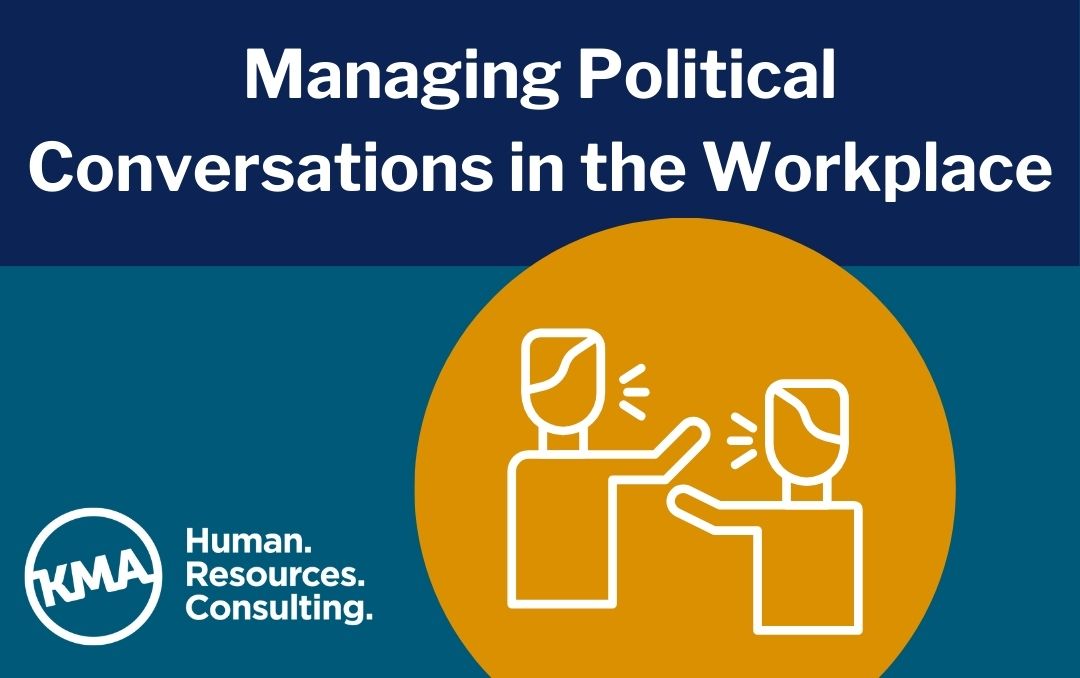 Another federal election is upon us, and as political tensions rise during these potentially fractious periods, workplaces can become arenas for heated discussions. While political engagement is a vital part of civic responsibility, unregulated conversations about politics at work can lead to discomfort, distraction, and sometimes conflict. Our goal with this article is to guide employers in crafting clear, fair policies that maintain a productive and respectful work environment, even in the most politically charged times.
Another federal election is upon us, and as political tensions rise during these potentially fractious periods, workplaces can become arenas for heated discussions. While political engagement is a vital part of civic responsibility, unregulated conversations about politics at work can lead to discomfort, distraction, and sometimes conflict. Our goal with this article is to guide employers in crafting clear, fair policies that maintain a productive and respectful work environment, even in the most politically charged times.
Why Employers Need to Address Political Conversations
Political discussions can inadvertently cause friction among employees with opposing views and values. We recommend that employers establish a policy framework to avoid misunderstandings, maintain inclusivity, and protect the company from risks.
Considerations for Crafting Policies
First Amendment Rights vs. Workplace Conduct: While employees may feel entitled to share their political opinions, it is important to recognize that First Amendment rights don’t extend to private workplaces in the same way they do in public spaces. While employers may set reasonable limits on political discussions to maintain workplace harmony, they should be aware of any federal or state laws protecting workers’ speech. See Legal Considerations below.
Respect for Diversity and Inclusion: Political opinions often intersect with deeply held beliefs about race, gender, religion, and identity. Encouraging employees to respect diverse perspectives can prevent polarizing discussions from escalating into harassment or discrimination. Policies should emphasize the importance of maintaining a respectful and inclusive atmosphere.
Impact on Productivity: Employers should consider how political conversations might impact productivity. Clear guidelines about limiting political discourse during work hours can help mitigate this issue.
Policy Recommendations
Define Acceptable and Unacceptable Behavior: Clearly outline what types of political expressions are acceptable at work and what aren’t. For example, while casual conversations about current events may be allowed, inflammatory or disrespectful remarks should not be tolerated.
Promote a Neutral Workplace: Employers may consider adopting a neutral stance, where political posters, attire, or paraphernalia are restricted. This policy helps create an environment focused on work, rather than on political allegiances.
Encourage Civility and Open Dialogue: If political discussions are allowed, encourage a culture of civility and respect. Establish ground rules for political discussions in shared spaces like break rooms or during company events.
Leverage Existing Anti-Harassment Policies: Political conversations can sometimes lead to offensive remarks that border on harassment. Employers should remind staff that the company’s existing anti-harassment policies extend to all forms of communication, including discussions related to politics. Any behavior that creates a hostile work environment should be subject to the same disciplinary measures.
Provide Clear Reporting Channels: Employees should know how to report uncomfortable or inappropriate political conversations. Establish clear, confidential reporting channels that allow employees to express concerns without fear of repercussion.
Limit Political Activity During Work Hours: Political activism, campaigning, or solicitation should be prohibited during working hours.
Review Social Media Policy: Political opinions are frequently shared on social media channels. Employers should review their social media policies to determine how they may affect employee rights.
Legal Considerations
Employers should also be aware of state and federal laws, such as Section 7 of the National Labor Relations Act (NLRA), regarding political expression in the workplace. Some states have specific protections for employees based on political affiliations or activities. It’s essential to consult legal counsel when drafting or revising political conversation policies to ensure compliance with relevant laws.
As we approach another election cycle, employers should be prepared to handle the inevitable surge in political discussions. With a thoughtful and balanced policy, you can maintain a positive, respectful, and productive work environment, while acknowledging the diverse views of your workforce.
Reach out to the team at KMA for help with developing policies and best practices for managing politics in the workplace.
